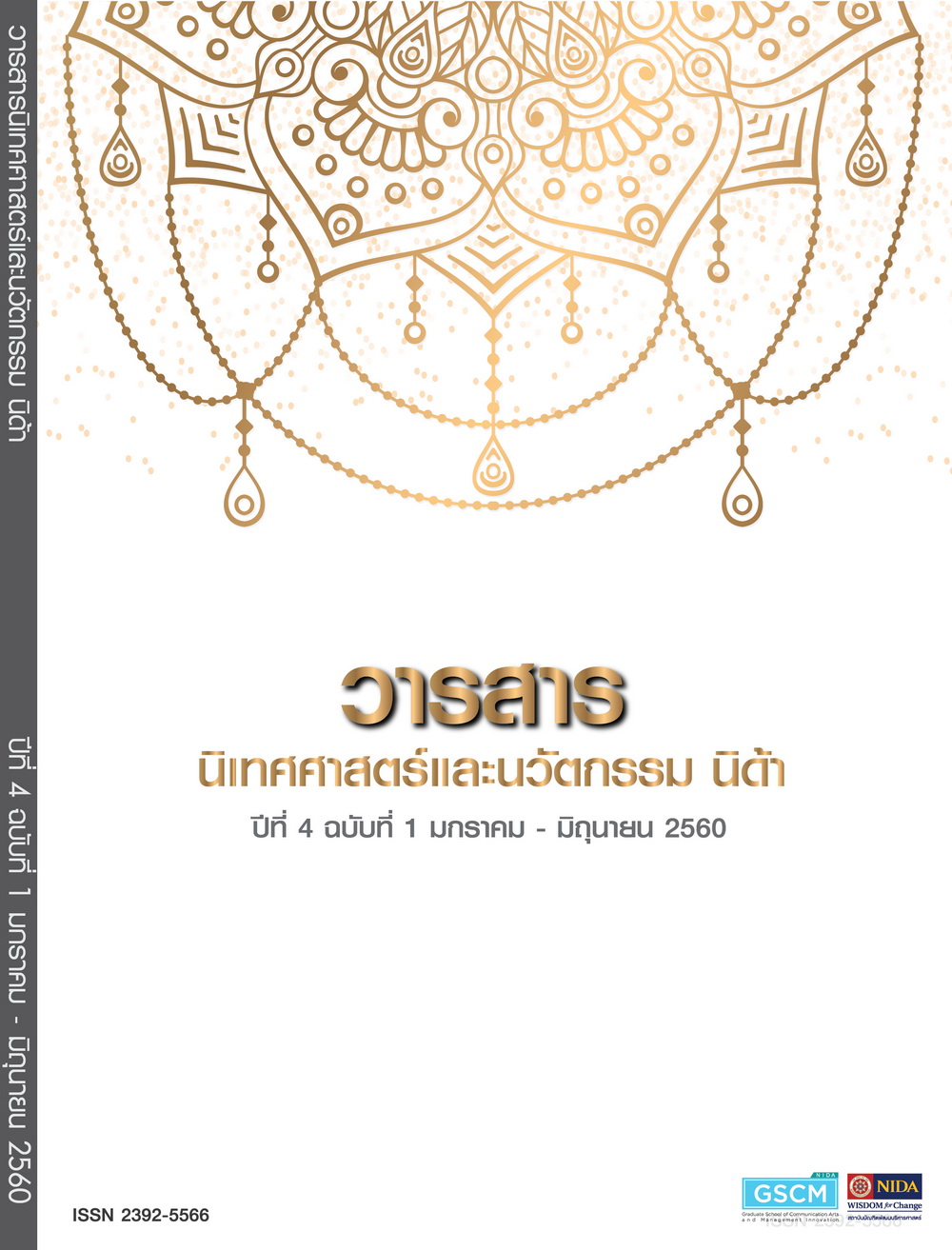Communication and the Construction of Meanings and Tastes in a Consumption of Sushi in Thai Society
Main Article Content
Abstract
The research studies Sushi consumption of middle class Thai society which communicates “Habitus” and “Tastes” in Sushi consumption, a system of embodied dispositions, tendencies that organize the ways in which individuals perceive the social world around them and react to it. These dispositions are usually shared by people with similar backgrounds, among those with similar or differing sushi consumption behavior. The way sushi is used in communicating different consumer taste perceptions in lifestyle and daily routines was also examined. Forms, features, and differences of sushi consumption reflected taste, created identity and individuality through consumption. Choice of imported and locally produced sushi was studied. Replenishment demand was examined for logic of use and sign values for consumers. Among other food choices, sushi created a Japanese cultural identity and taste for Thai customers, creating a self-difference associated with social level. The taste for sushi first required economic capital, revealing social inequalities through consumption of premium and locally produced products.
Article Details
ข้อความและความเห็นในวารสารนิเทศศาสตร์และนวัตกรรม นิด้า เป็นของผู้เขียนแต่ละท่าน มิใช่ของคณะนิเทศศาสตร์และนวัตกรรมการจัดการ สถาบันบัณฑิตพัฒนบริหารศาสตร์


